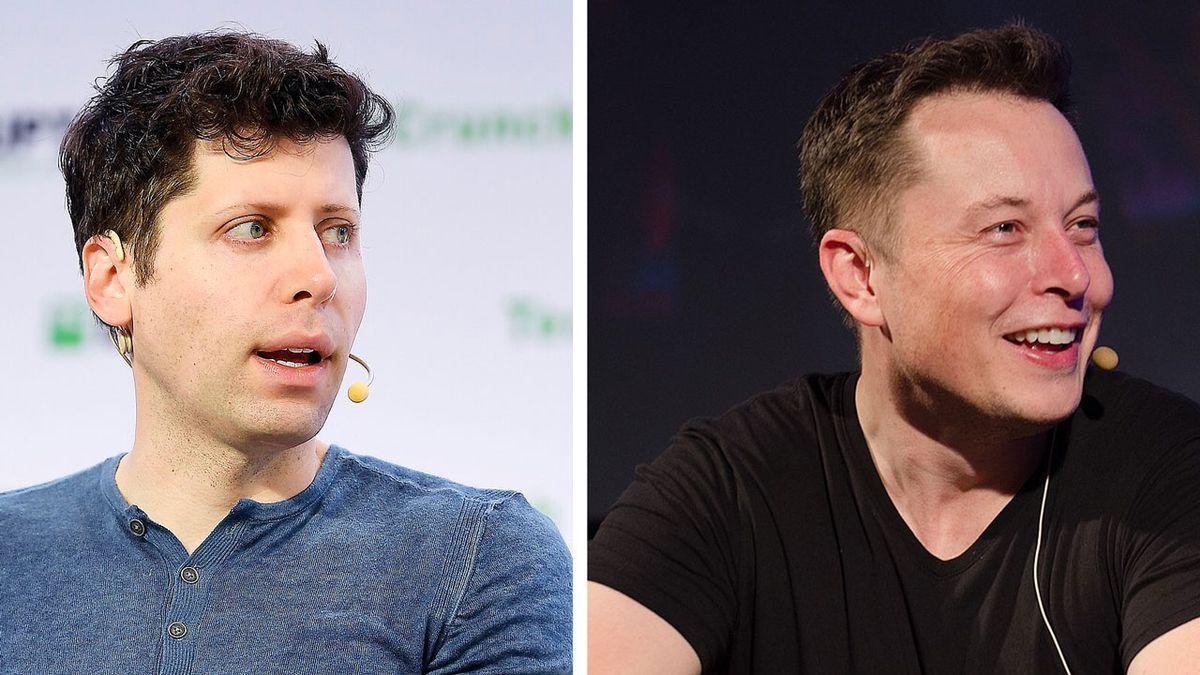Elon Musk's Lawsuit Against OpenAI Unveils Power Struggles and Ethical Concerns
2 Sources
2 Sources
[1]
Inside Elon Musk's messy breakup with OpenAI
"Fine by me if they don't use this in active messaging," Musk responded. "Would be worth way more than $50M not to seem like Microsoft's marketing bitch." Musk released these emails and others last week as part of a lawsuit he's filed against OpenAI and Microsoft. They are ostensibly meant to demonstrate an anticompetitive partnership between the two companies. But primarily, they expose the details of early collaborations and power struggles between Altman and Musk, who invested between $50 million and $100 million in the earliest iteration of OpenAI. They trace OpenAI's evolution from an open-source nonprofit to what the lawsuit calls a "closed-source de facto subsidiary" of Microsoft that abandoned its mission to develop AI for good. And they lay bare the complete and utter unraveling of Musk and Altman's once-promising partnership.
[2]
Elon Musk vs. OpenAI: Emails Reveal Bitter Feud Over AI Control
Dispute Over Microsoft Deal: Emails reveal Musk's resistance to OpenAI partnering with Microsoft, fearing it would reduce the nonprofit to a 'marketing pawn'. While Musk reluctantly agreed to the terms, tensions lingered over OpenAI's reliance on external funding. The Salary Wars with DeepMind: OpenAI had difficulty finding the world's best AI talent when competing against DeepMind from Google. Huge pay increases were authorised to retain personnel, indicating a direct trade-off in competitiveness between the two companies. Power Struggles Intensify: By 2017, Musk, and other co-founders, Greg Brockman and Ilya Sutskever were battling for control. Worries about one-man 'unilateral absolute control' of AI technology emerged, as well as about Altman's leadership and motives. Musk's Resignation: In 2018, Musk said he would step up to take full control of OpenAI since it was far lagging behind Google. The leadership refused, and Musk walked off the board of OpenAI.
Share
Share
Copy Link
Elon Musk's lawsuit against OpenAI and Microsoft reveals internal conflicts, ethical dilemmas, and the transformation of OpenAI from a nonprofit to a commercial entity. The case highlights tensions between AI development for public good and corporate interests.

Musk's Lawsuit Exposes OpenAI's Transformation
Elon Musk has filed a lawsuit against OpenAI and Microsoft, revealing internal emails that shed light on the power struggles and ethical concerns surrounding the AI research company's evolution. The lawsuit alleges an anticompetitive partnership between OpenAI and Microsoft, claiming that OpenAI has strayed from its original mission of developing AI for the public good
1
2
.Early Collaborations and Investments
The emails disclose that Musk invested between $50 million and $100 million in OpenAI's earliest iteration. This significant financial contribution underscores Musk's initial commitment to the company's mission as an open-source nonprofit
1
.Tensions Over Microsoft Partnership
One of the key points of contention was OpenAI's partnership with Microsoft. Musk expressed strong reservations about this collaboration, fearing it would reduce OpenAI to a "marketing pawn" for the tech giant. In one email, Musk stated, "Would be worth way more than $50M not to seem like Microsoft's marketing bitch"
1
2
.Competitive Pressures and Talent Retention
The emails also reveal the intense competition OpenAI faced in attracting and retaining top AI talent, particularly against Google's DeepMind. This led to significant salary increases for OpenAI employees, highlighting the fierce battle for expertise in the AI field
2
.Internal Power Struggles
By 2017, internal conflicts had intensified among OpenAI's co-founders, including Musk, Greg Brockman, and Ilya Sutskever. Concerns arose about the potential for "unilateral absolute control" over AI technology, as well as questions about Sam Altman's leadership and motivations
2
.Related Stories
Musk's Departure from OpenAI
The situation came to a head in 2018 when Musk offered to take full control of OpenAI, citing the company's lag behind Google in AI development. When the leadership refused his proposal, Musk resigned from OpenAI's board
2
.Ethical Concerns and Mission Shift
Musk's lawsuit argues that OpenAI has transformed from an open-source nonprofit into a "closed-source de facto subsidiary" of Microsoft. This shift, according to Musk, represents an abandonment of OpenAI's original mission to develop AI for the benefit of humanity
1
.Implications for AI Development
This legal battle highlights the ongoing tensions between the ideals of open-source AI development for public good and the commercial interests driving technological advancement. It raises important questions about the future direction of AI research and the ethical considerations that should guide its development
1
2
.References
Summarized by
Navi
[1]
[2]
Related Stories
Musk vs. Altman: Tesla Refund Dispute Reignites OpenAI Feud as Legal Battle Continues
03 Nov 2025•Business and Economy

OpenAI and Elon Musk Agree to Fast-Track Trial Over For-Profit Shift
15 Mar 2025•Business and Economy

Elon Musk demands up to $134 billion from OpenAI and Microsoft as lawsuit heads to trial
16 Jan 2026•Policy and Regulation

Recent Highlights
1
ByteDance's Seedance 2.0 AI video generator triggers copyright infringement battle with Hollywood
Policy and Regulation

2
Demis Hassabis predicts AGI in 5-8 years, sees new golden era transforming medicine and science
Technology

3
Nvidia and Meta forge massive chip deal as computing power demands reshape AI infrastructure
Technology





